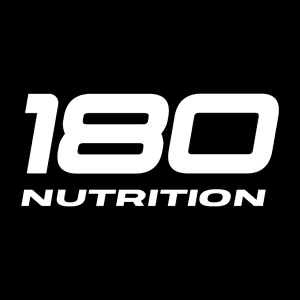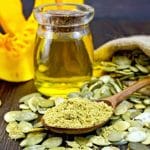Everything You Need To Know About Vitamin C
From the time we can ask for orange juice with breakfast, we’re already taught how important vitamin C is for our bodies. We learn it’s needed for immune function and that people who get enough are sick less often, and as we age, we find out it’s an antioxidant and it’s necessary for our heart.
These are all ideas that are probably at least vaguely familiar to you, but this vitamin – also called ascorbic acid – is critical for our entire bodies. It helps create collagen, builds neurons in the brain, improves cardiovascular function, and plays a key role in preventing damage by free radicals.
We’ll look at what ascorbic acid does in detail, why it’s so important, and the best ways for you to get it in your diet.
Discover The Health Benefits of Vitamin C
Ascorbic acid has many benefits for your body; one of the most common beliefs is that it boosts your ability to fight disease.
This isn’t strictly true, as it doesn’t prevent or cure any kind of illness. What it does do is power up your immune cells to work harder and last longer before apoptosis claims them. This turns your t-cells into powerhouses to fight infection and other diseases.
Collagen production
Ascorbic acid is critical to creating collagen, which in turn is necessary for immune function, proper intestinal cell health, scar creation, heart health, joint function, and a slew of other processes.
Without this vitamin, people cannot synthesise collagen at all and this leads to a disease called scurvy. Without collagen production, your joints fail and scars start to break down, leading to bleeding and essentially paralysis. If you need any incentive to get adequate ascorbic acid, this is a good one. Click here if you are looking to add more collagen to your diet.
Neuronal function
Your brain’s cells, called neurons, require a form of ascorbic acid called ascorbate, to function. Without it – or when there’s an inadequate amount – your neurons fire slowly and function poorly.
Diets that are consistently low in vitamin C are setting the stage for impaired thinking and potential neuron damage.
Absorption of other nutrients
Like most vitamins and minerals, ascorbic acid needs to be taken with other nutrients for proper absorption. This is one reason it’s almost always preferred to get your vitamins from whole foods like fruits and vegetables, as they occur naturally with other nutrients that compliment them. When you take a vitamin C supplement, it’s unlikely your body will use all of it; in fact, you end up excreting the majority of most vitamin supplements in your urine if they’re not formulated well.
Iron is critical for blood production, among other things, and adequate amounts of ascorbic acid intake will increase your body’s ability to utilise iron. Without iron, your body couldn’t make red blood cells, platelets, or other critical structures.
Gallbladder health
Your gallbladder stores bile from your pancreas and liver, excreting it to help digest meals – particularly those high in fat. Some people are predisposed to accumulating bile stones in their gallbladder, and while for some people this never causes a problem, for others it can be painful and even life-threatening.
People who take vitamin C supplements or who get adequate amounts in their diets have a dramatically lower incidence of gallstones. If you’re genetically disposed to getting stones, or you already have them, supplementing or eating more ascorbic acid is something to consider.
Heart function
While there is no clear link as to why vitamin C improves heart health, there are some studies that indicate that people who get plenty in their diet (or who supplement) have a reduced risk of heart disease.
This could be that people who care enough to take vitamin C supplements or who eat plenty in their diet, take care of themselves more in general. It’s also possible there’s simply some underlying direct link between ascorbic acid consumption and heart health that we don’t understand yet. Either way, it’s a good idea to improve your diet in general, and it seems that getting more vitamin C can’t hurt.
How do I increase my vitamin C intake?
You can take a well-formulated supplement, but as with all nutrients, getting it through your diet is the preferred method. Eating salads each day, fruit with breakfast, or adding a fruit smoothie to your meal plan are all great ways to get more ascorbic acid in your diet.
While the addition of vegetables to each meal is beneficial across the board for better health, utilising the right kinds of veggies can boost your intake of vitamin C and provide the most benefit.
Some of the most vitamin-dense fruits and vegetables are:
- Capsicums
- Strawberries
- Cantaloupe
- Guava
- Cauliflower
- Broccoli
- Papaya
- Spinach/dark, leafy greens in general
- Oranges
- Tomatoes
This list isn’t exhaustive, but these are all great ingredients for a meal that improves ascorbic acid intake. Keep in mind especially that leafy greens – while most people aren’t super-excited about the taste – are virtually undetectable when blended into a smoothie. You should always add some to boost your vitamin and mineral intake – you likely won’t even notice.
How much is enough?
For adults, between 75mg and 90mg per day is enough. The suggested daily “maximum” is around 2,000mg, but if you’re getting it from whole foods, that’s not something you need to worry about. Vitamin maximum limits are difficult to hit in most cases unless you’re supplementing with pills or powders.
Getting a wide variety of colourful fruits and vegetables in your diet will not only boost your intake of ascorbic acid but also your nutritional density in general. A wider variety of nutritionally dense food can improve heart and digestive health, and just generally make you feel better.
What’s even better is that vitamins and minerals that are taken in the form of whole foods almost always occur naturally with the nutrients that compliment them, which again is something that most supplements do not do.
Grab some fruit, steam some broccoli, blend up a smoothie or hit up the pharmacy but no matter how you do it, make sure you’re getting your recommended daily intake of ascorbic acid!







